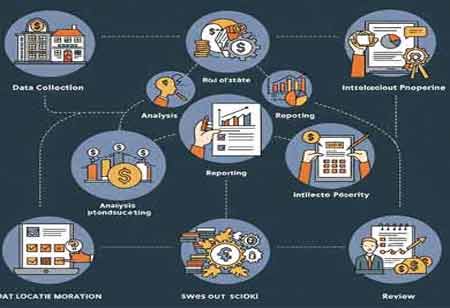CLOSE
Specials
- RegTech Europe
- Financial Risk Management APAC
- Investment Banking APAC
- Corporate Advisory APAC
- Regtech APAC
- Escrow Services
- Digital Banking Latam
- Trading Solutions APAC
- Treasury Management Europe
- CPA Firms Canada
- Financial Risk Management Europe
- Mortgage Broker
- Financial Licensing Europe
- RIA Advisory Europe
- FinTech Canada
- Financial Asset Management APAC
- Investment Banking Canada
- Payment Solution
- Lending Mangment Latam
- Payment Solution Europe
- Broker Dealer Firms Canada
- Alternative Investments Canada
- Financial Fraud
- Investment Management Latam
- Financial Health Europe
- Lending mangment
- Financial Marketing
- Proprietary Trading Europe
- Wealth Management
- FinTech
- Financial Brokerage Firm APAC
- Investment Advisory Europe
- Investment Advisory APAC
- Wealth Management MENA
- Claim Adjusting
- Claim Adjusting APAC
- Mergers and Acquisitions Consulting APAC
- Equipment Financing
- CPA Firms
- Mergers and Acquisitions Consulting Canada
- Investment Services
- Valuation Services Canada
- Wealth Management APAC
- Broker Dealer Firms
- Debt Collection Agencies
- Mergers and Acquisitions Consulting
- FinTech Europe
- Fintech Latam
- Financial Planning / Retirement
- Investment Management
- Financial Compliance
- Digital Banking Europe
- CFO Services
- Debt Collection Agencies Europe
- Wealth Management Europe
- Mergers and Acquisitions Consulting Europe
- Financial Restructuring Europe
- Financial Portfolio Management Canada
- Business Loan
- Payment and Card Latam
- Wealth Management Latam
- Mergers and Acquisitions Consulting Latam
- Tax Advisory Canada
- Trading Solutions Europe
- Alternative Investments
- Digital Insurance Europe
- Investment Services Latam
Weekly Brief
×Be first to read the latest tech news, Industry Leader's Insights, and CIO interviews of medium and large enterprises exclusively from Financial Services Review
Thank you for Subscribing to Financial Services Review Weekly Brief
Project Financing: Unlocking Growth Opportunities through Strategic Financial Partnerships
Project financing drives economic growth and enables ambitious ventures across various industries.

By
Financial Services Review | Wednesday, June 07, 2023
Stay ahead of the industry with exclusive feature stories on the top companies, expert insights and the latest news delivered straight to your inbox. Subscribe today.
Project financing catalyzes economic growth, innovation, and sustainable development.
FREMONT, CA: Project financing drives economic growth and enables ambitious ventures across various industries. This article explores the significance of project financing in today's business landscape and its impact on fostering innovation, infrastructure development, and sustainable growth. By understanding the dynamics of project financing and leveraging strategic financial partnerships, businesses can unlock new opportunities and propel their projects toward success.
1. The Essence of Project Financing: Project financing involves securing specialized funding for large-scale projects, typically infrastructure or capital-intensive ventures. Unlike traditional corporate financing, project financing relies on the project's cash flow and assets as collateral rather than solely relying on the company's balance sheet. This unique structure mitigates risks for investors while facilitating access to significant capital for businesses undertaking ambitious projects.
2. Catalyzing Innovation and Economic Development: Project financing is critical in stimulating innovation and driving economic development. Providing access to substantial financial resources enables businesses to embark on groundbreaking projects that push the boundaries of technology, sustainability, and infrastructure. Whether it's renewable energy installations, transportation networks, or real estate developments, project financing fuels initiatives that spur economic growth, create jobs, and enhance communities' overall quality of life.
3. Mitigating Risks through Specialized Expertise: One of the key advantages of project financing is the ability to tap into the expertise of specialized financial institutions. These institutions possess in-depth knowledge of specific industries and project types, allowing them to assess risks effectively and structure financing arrangements that align with the unique characteristics of each project. The involvement of experienced project financiers brings risk mitigation and financial structuring expertise that enhances the chances of success.
4. Public-Private Partnerships (PPPs): Project financing often involves collaboration between public and private entities through Public-Private Partnerships (PPPs). PPPs leverage the strengths of both sectors, combining public resources, regulatory support, and private sector efficiency and innovation. This collaboration allows for the efficient delivery of public infrastructure projects, such as roads, airports, hospitals, and schools, while ensuring private sector participation and accountability. PPPs facilitate project financing by sharing public and private stakeholders' risks, responsibilities, and rewards.
5. Sustainable and Impactful Investing: With growing environmental and social concerns, project financing is increasingly focused on sustainability and impact investing. Investors seek projects aligning with environmental, social, and governance (ESG) criteria, promoting sustainable practices and positive social impact. Renewable energy projects, green infrastructure, and sustainable development initiatives are gaining traction as businesses and investors recognize the long-term benefits of environmentally responsible projects. Project financing plays a crucial role in facilitating the funding of such initiatives, fostering a greener and more socially responsible business landscape.
6. Securing Financing for Emerging Markets: Project financing is instrumental in facilitating investments in emerging markets. These markets offer significant growth potential but often lack the necessary infrastructure and financial resources. Through project financing, businesses can access the capital required to initiate large-scale projects in these markets, driving economic development and creating opportunities for local communities. Project financing opens doors for international investments and contributes to the sustainable development of emerging economies.
Conclusion: Project financing catalyzes economic growth, innovation, and sustainable development. By leveraging strategic financial partnerships, businesses can unlock the necessary capital, expertise, and risk mitigation tools to undertake ambitious projects. Whether it's infrastructure development, renewable energy initiatives, or public-private collaborations, project financing is vital in driving progress and shaping the future of industries and economies. Embracing project financing as a strategic tool empowers businesses to transform ideas into reality and fosters growth and prosperity.

Copyright © 2025 Financial Services Review. All rights reserved





